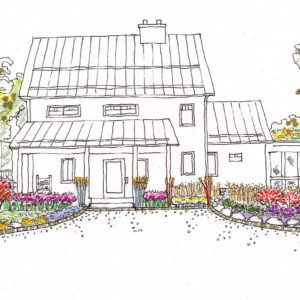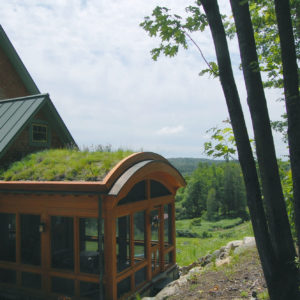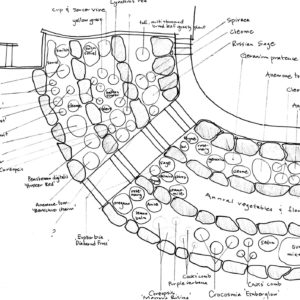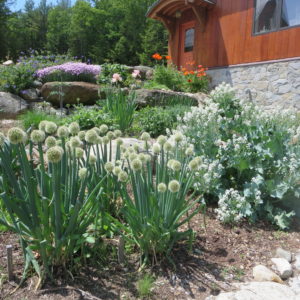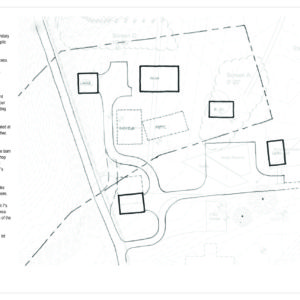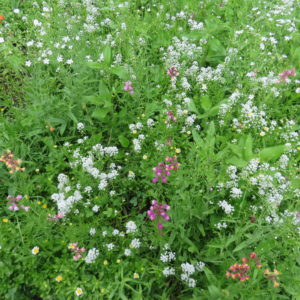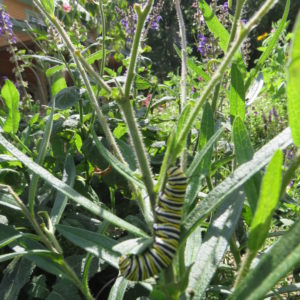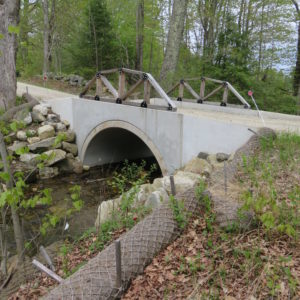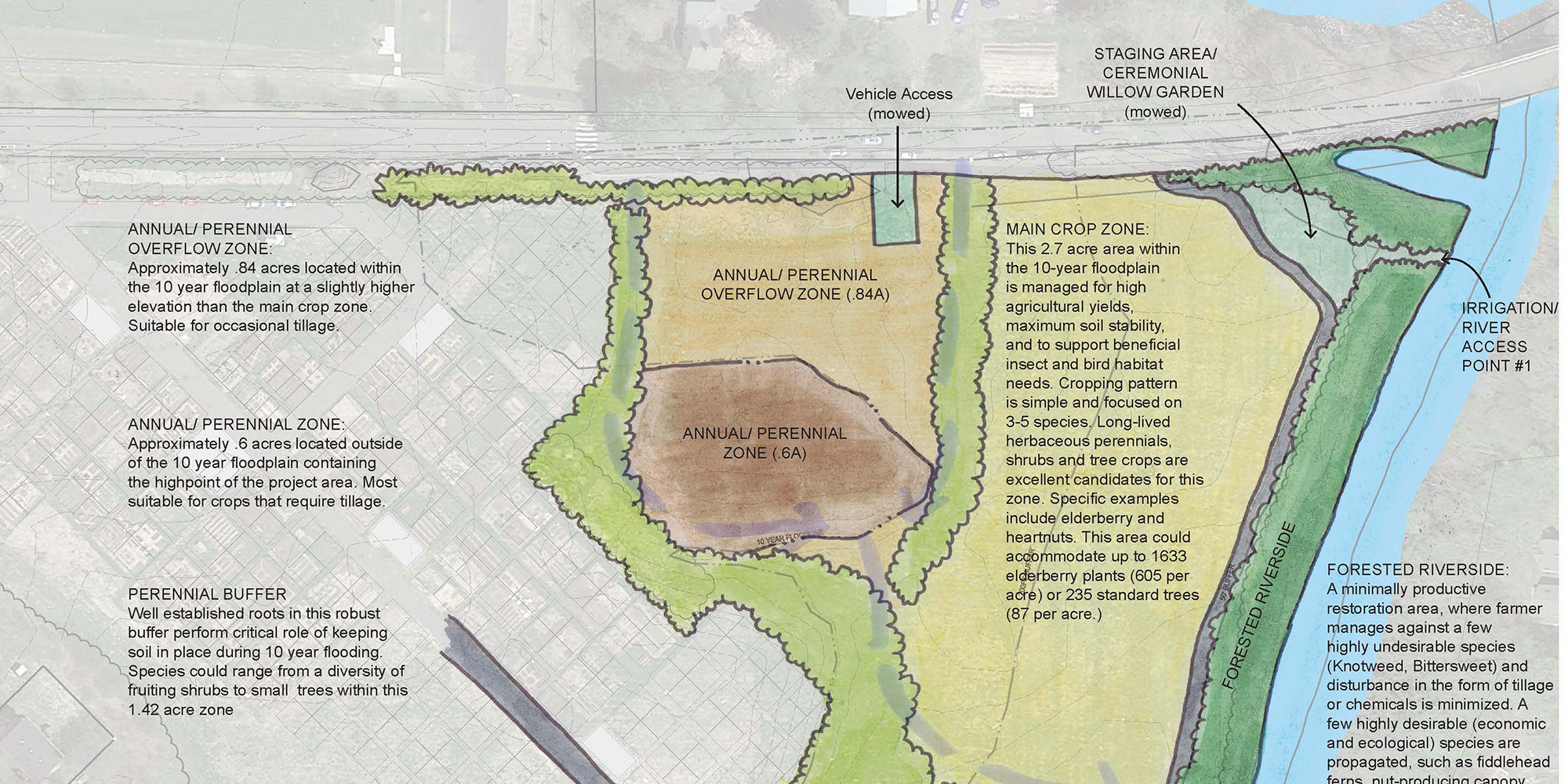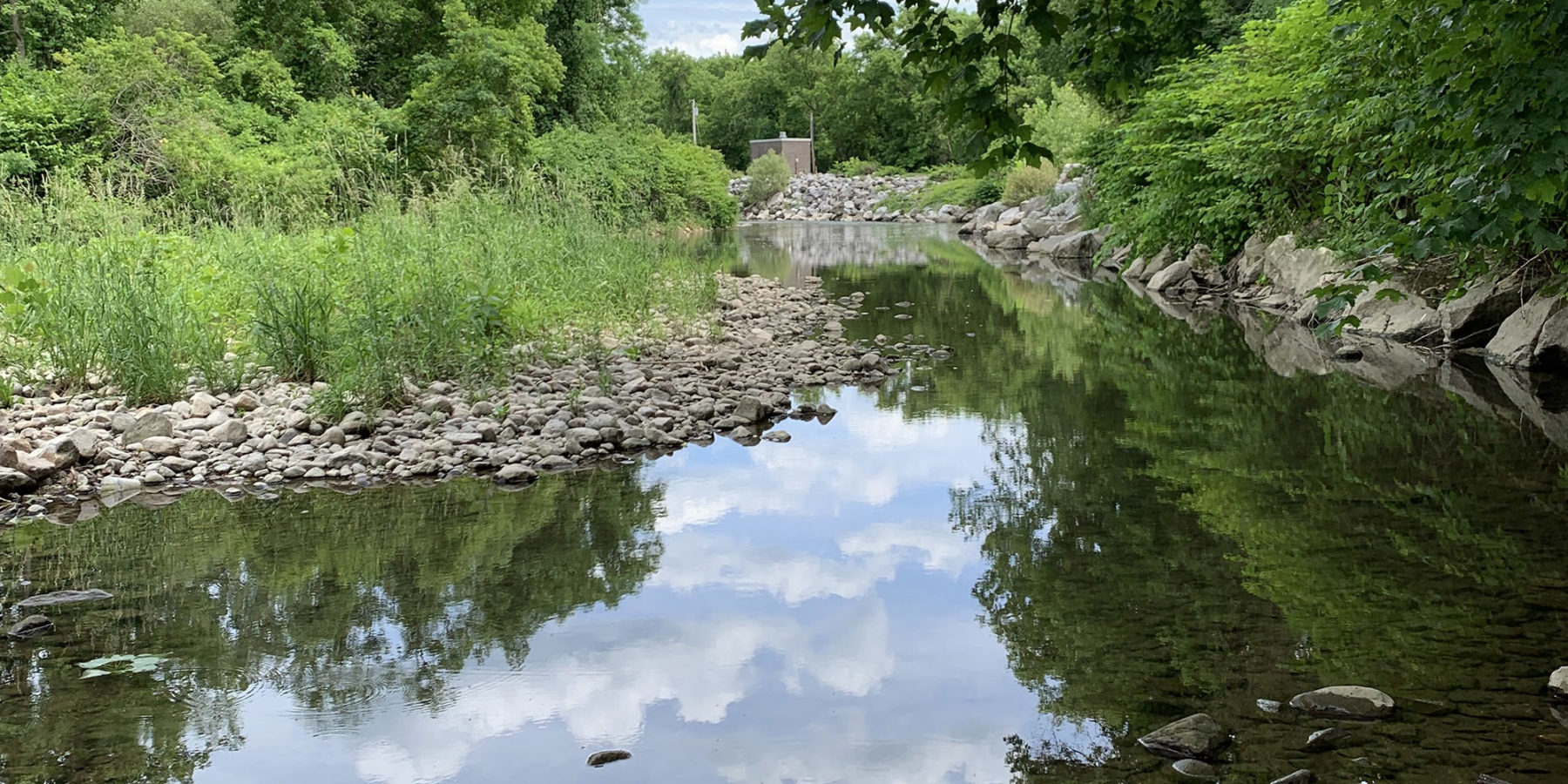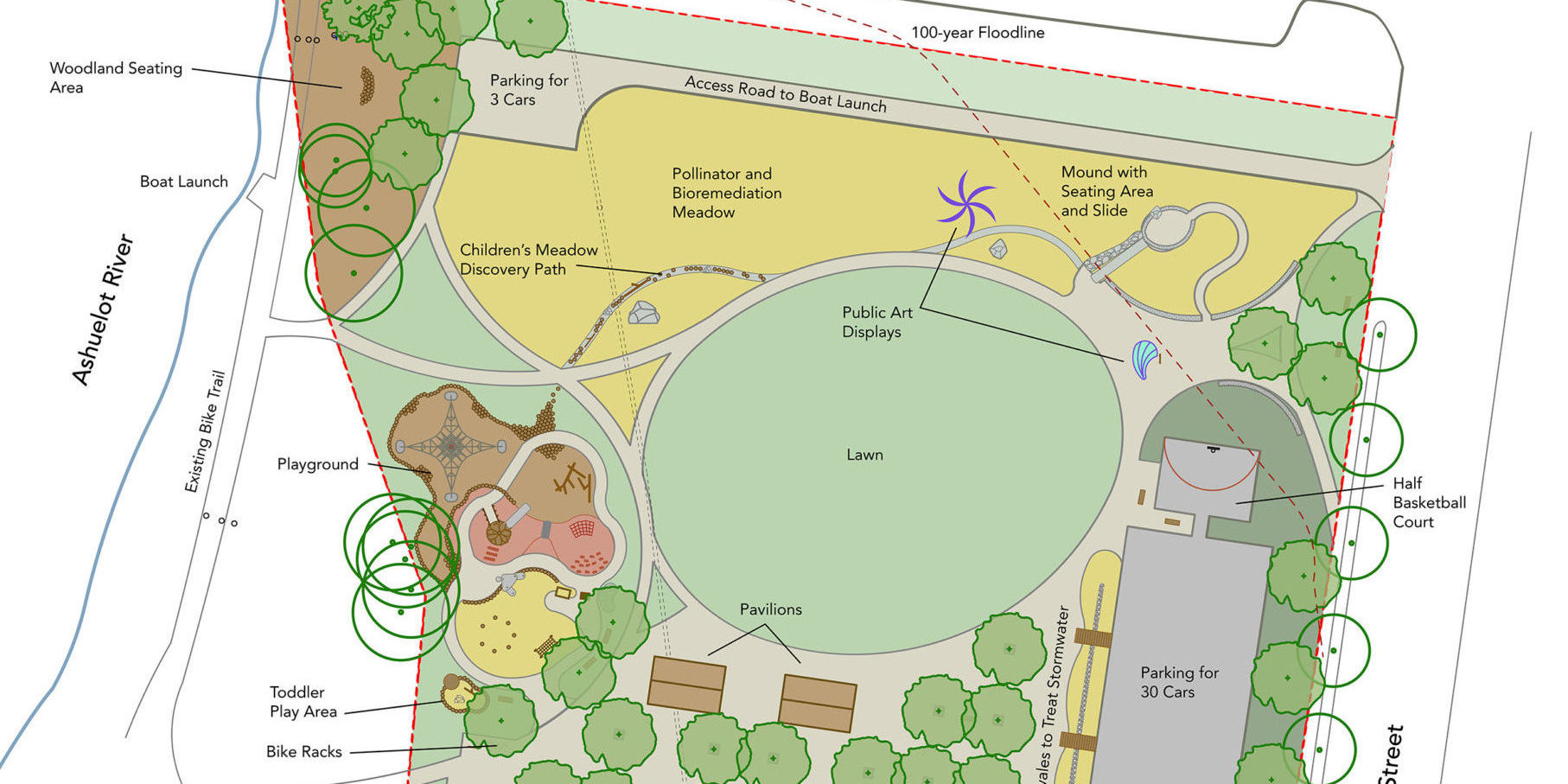The Two Pond Farm Site Plan weaves together restoration, conservation, residential development, and agriculture to create a home for five families in Western Massachusetts.
Two Pond Farm, Williamsburg, MA
Years of extractive use, abuse, and neglect left many areas of Two Pond Farm in a state of degeneration. RDG has guided the planning and development of the site since 2004, beginning with a site planning process that sited several agriculturally productive homes. From 2009 through 2011, our team coordinated garden design, installation of an herbal green roof, large rain gardens, a waste-recycling orchard, and extensive terraced gardens.
This project integrates cutting-edge green technologies with simple, low-tech land restoration techniques to create a productive, self-reliant community with a compact footprint. The scope of this project ranges from broadscale site regeneration work, like soil building and erosion control, to details such as crop planning and garden design. The majority of the areas are being treated with low-impact techniques to build soil health through the use of compost, cover crops, biochar, remineralization, and compost teas. Some areas, like a former gravel mine, required more intensive restoration efforts. In the course of a single growing season, RDG’s efforts transformed an eroding, lifeless bank into a wildflower meadow filled with colorful plants and native pollinators.
RDG also worked with the owners of Two Pond Farm to identify opportunities to improve wildlife habitat and conserve important ecosystems on the land, including putting 40 acres of the most ecologically rich land into conservation. Our team then designed a number of agriculture and forestry zones including pasture, silvopasture, firewood coppice, edible forest gardens, and the main cropping area. The intensive central garden area is both a food production zone and a beautiful social area. It contains gardens, orchards, chickens and forage areas, small fruit trees and shrubs, and tool storage. Fruit trees surround each home-site to provide privacy and food.
Key Features
- Edible landscaping
- Zoned areas for intensive production, decorative landscaping, gathering, and wildlife habitat
- Regenerative soil practices
- Enhanced pollinator habitat
- Wetland replication
Services Provided
- Visioning and goal setting
- Site analysis
- Comprehensive site planning
- Wetland replication permitting
- Garden design
- Ongoing consultancy
- Project management and maintenance oversight
- Plant planning, sourcing, and planting
- Collaboration with other professionals.
Main Goal: To make our farm a mosaic of agriculturally productive ecosystems integrated with the landscape: Gardens, Orchards, Pastures, Barns, Forest Gardens, Greenhouses, Ponds, and Woodlots.
Two Pond Farm Goals Articulation Document

